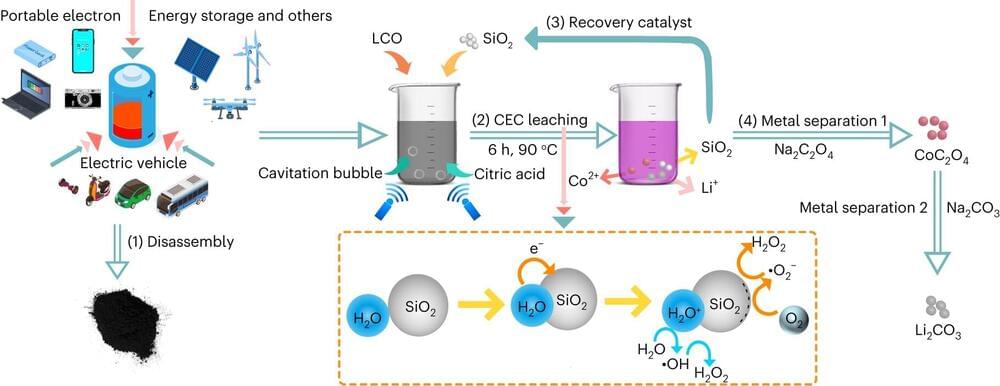Lithium-ion batteries (LIBs), which store energy leveraging the reversible reduction of lithium ions, power most devices and electronics on the market today. Due to their wide range of operating temperatures, long lifespan, small size, fast charging times and compatibility with existing manufacturing processes, these rechargeable batteries can greatly contribute to the electronics industry, while also supporting ongoing efforts towards carbon neutrality.
The affordable and eco-friendly recycling of used LIBs is a long sought-after goal in the energy sector, as it would improve the sustainability of these batteries. Existing methods, however, are often ineffective, expensive or harmful to the environment.
Moreover, LIBs heavily rely on materials that are becoming less abundant on Earth, such as cobalt and lithium. Approaches that enable the reliable and cost-effective extraction of these materials from spent batteries would drastically reduce the need to source these materials elsewhere, thus helping to meet the growing LIB demand.
